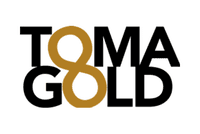Randgold Chief Executive Mark Bristow says further consultation is needed on the new proposed mining code in the country.
Randgold (LSE:RRS) reported record annual production on Monday (February 5), but the company could be in trouble if a proposed mining code becomes law in the Dominican Republic of Congo (DRC).
The country’s parliament has approved the code, which would subject miners to new royalty charges and a 50 percent super profits tax immediately.
The mining code has to be signed by the country’s president and then it will become law. According to Bloomberg, the DRC government believes that the economy has grown, but the mining industry has not generated sufficient revenue for the state.
On Monday, Randgold Chief Executive Mark Bristow said the mining industry has made repeated representations to the Congolese Ministry of Mines about what it considers to be flaws in the new code.
He added that it is “disappointing” that none of the company’s proposals and comments are reflected in the legislation, which he called “more draconian in its final form than earlier drafts.”
Bristow highlighted that the new code attempts to scrap a 10-year stability clause that was part of the 2002 code, which attracted Randgold’s investment in the DRC.
“It is our express wish that the government grasps the serious consequences this ill-considered code will have on its ability as a country to attract international investment and re-investment to the DRC, and to refer the code back to the ministry of mines for further consultation with the industry,” he said.
Bristow continued, “[i]f this fails, however, we shall seek to enforce our rights including those which provide for international arbitration.”
Randgold’s profits for the year were $335 million and its net cash rose by 39 percent, to $720 million. Randgold boosted its output by 5 percent, to 1.315 million ounces, ahead of its guidance, while shrinking total cash costs per ounce by 3 percent, to $620.
The company’s board has proposed a dividend of $2 per share, or double of what shareholders received in 2016. Its Kabali mine in the DRC consists of an open-pit underground operation and a processing plant. Kabali is one of the company’s five operating mines in Africa.
Other miners that oppose the proposed mining code include: Glencore (LSE:GLEN), China Molybdenum (HKEX:3993) and Ivanhoe Mines (TSX:IVN).
Don’t forget to follow us @INN_Resource for real-time news updates!
Securities Disclosure: I, Melissa Shaw, hold no direct investment interest in any company mentioned in this article.





